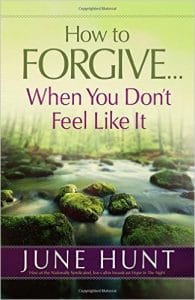“Our present life feels like a real fight as if there was something pretty wild in the universe which we needed to redeem.”-William James
In Chapter 5 (“Bold Authority”) of Moving Mountains, John Eldredge comments on words that get tacked onto the end of many prayers, yet seem to lack little of their original punch-“In Jesus’ name, Amen.” Amen, once a declaration, now has the emotional force of ‘talk to you later’ at the end of a phone call.
John emphasizes that “In Jesus’ name” is a far, far more declarative and final command than “Amen.” By saying “In Jesus’ name,” we are utilizing the ultimate authority of God to enforce the power of our prayers. The whole spiritual realm, including effective prayer, runs on authority. The author adds: “It is the secret to the kingdom of God and one of the essential secrets to prayer that works.”
The Lord’s Prayer, held high and repeated ritually, tells us to invoke the kingdom of God. John asserts that we are partners with Jesus in this mission to invoke God’s kingdom. The obvious implication, John observes, is that God’s kingdom is not always come and His will is not always done on earth as it is in heaven. Jesus wouldn’t urge us to pray for something that has no meaning. Mr. Eldredge summarizes:
“Apparently our biggest need is for his kingdom to invade our lives and our worlds. . . . It make perfect sense for Jesus to teach us to invoke his kingdom in our prayers; it makes all the sense in the world. And it opens up staggering opportunities for prayer.”
Today’s question: In your present life, what do the words “In Jesus’ name, Amen” mean to you? Please share.
Tomorrow’s blog: “Rule and reign”
Our present life
 “There are two kinds of people; those who say to God, ‘Thy will be done,’ and those to whom God says, ‘All right, then, have it your way.’ “- C. S. Lewis
“There are two kinds of people; those who say to God, ‘Thy will be done,’ and those to whom God says, ‘All right, then, have it your way.’ “- C. S. Lewis

